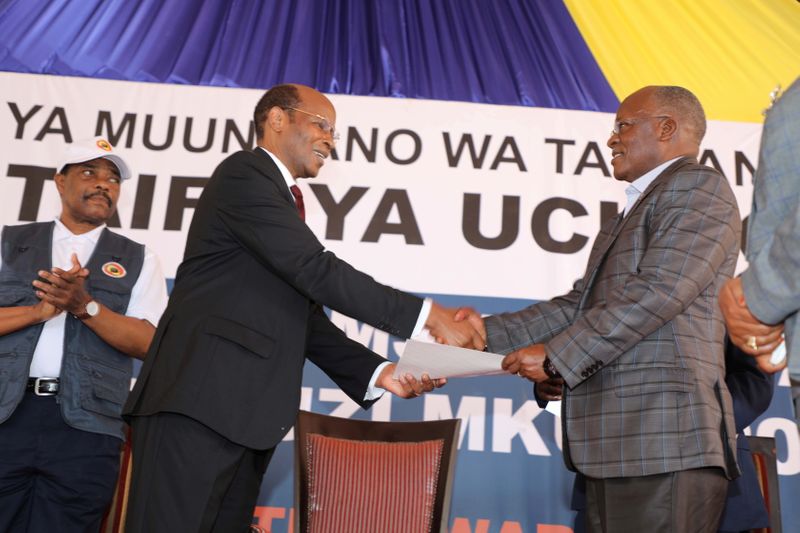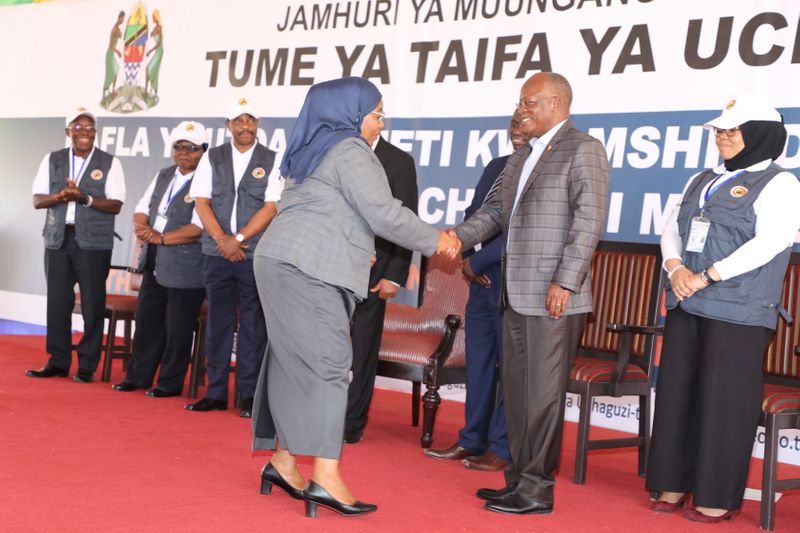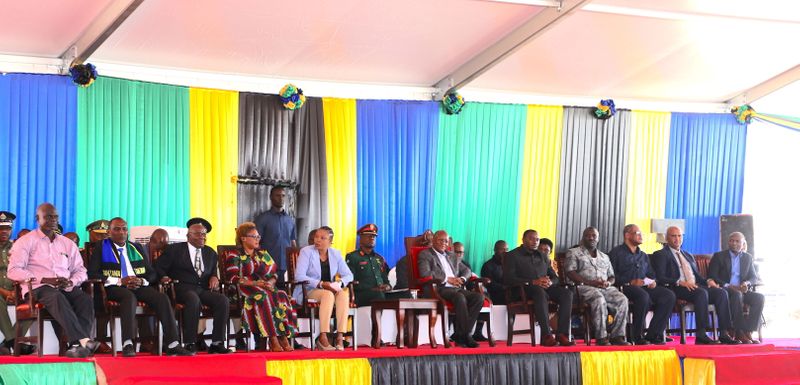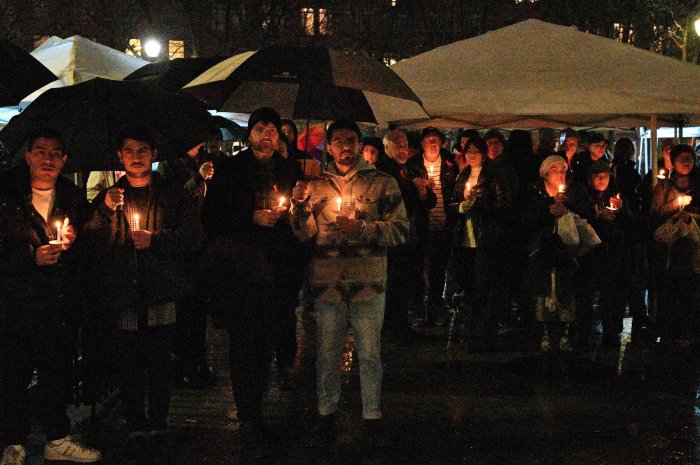NAIROBI (Reuters) – Tanzania’s President John Magufuli has promised to work with his rivals after a landslide victory in an election that his leading opponent described as a travesty and the United States said was marred by widespread irregularities.
The overture comes ahead of demonstrations the opposition has called for on Monday to protest against the poll’s results.
“I will be the servant of all Tanzanians. I would like to thank my fellow presidential contestants for participating,” Magufuli said at a function in the capital Dodoma where he formally accepted the results.
According to results announced by the country’s poll body on Friday, Magufuli secured 84% of the vote against his leading opponent Tindu Lissu’s 13%.
“I promise to work with you to ensure we are pushing for the national development. Development is non-partisan … politics is not a war, politics is not a conflict, we are all Tanzanians.”
On Saturday Lissu’s CHADEMA party and another opposition party ACT-Wazalendo rejected the results, called for protests and demanded a fresh poll be held.
The United States has said it was concerned about reports showing “systematic interference in the democratic process”.
The vote was marred by allegations of irregularities, including the use of force against unarmed civilians, pre-ticking of ballots, the detention of opposition officials and restrictions on political party agents accessing polling stations, the U.S. Embassy in Dar es Salaam said.
On Sunday Britain cited similar irregularities and demanded authorities carry out an investigation. Minister for Africa James Duddridge said in a statement Britain was “troubled by the reports of violence and heavy-handed policing in the elections, including the arrest of opposition political leaders.”
“Tanzania’s future stability and prosperity require a credible democratic process.”
Nicknamed the “Bulldozer”, Magufuli is praised by some for pushing through big-impact infrastructure projects and a sweeping anti-corruption campaign.
His critics accuse his government of intolerance and authoritarianism, including a crackdown on critical voices, closure of some media outlets and preventing opposition rallies. Officials deny the government is repressive.
(Writing by Elias Biryabarema; Editing by David Evans and Peter Graff)























